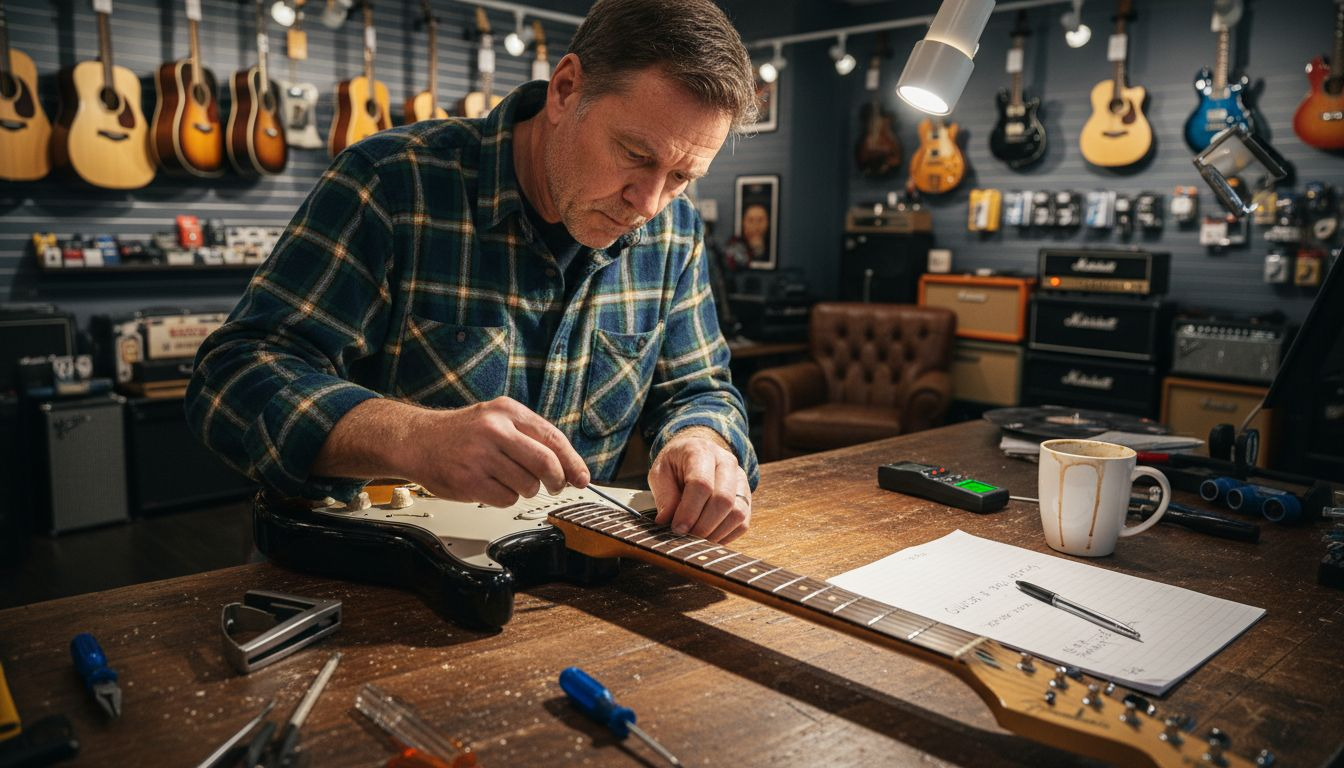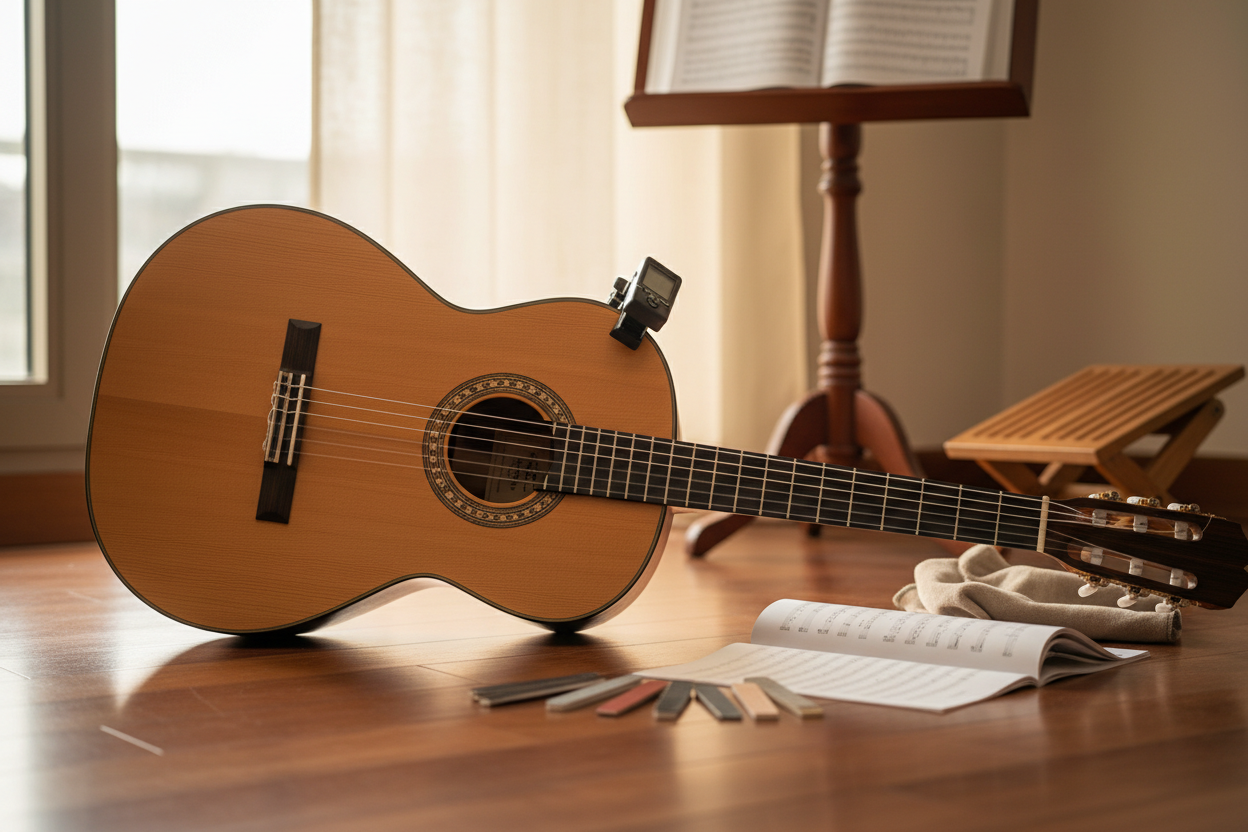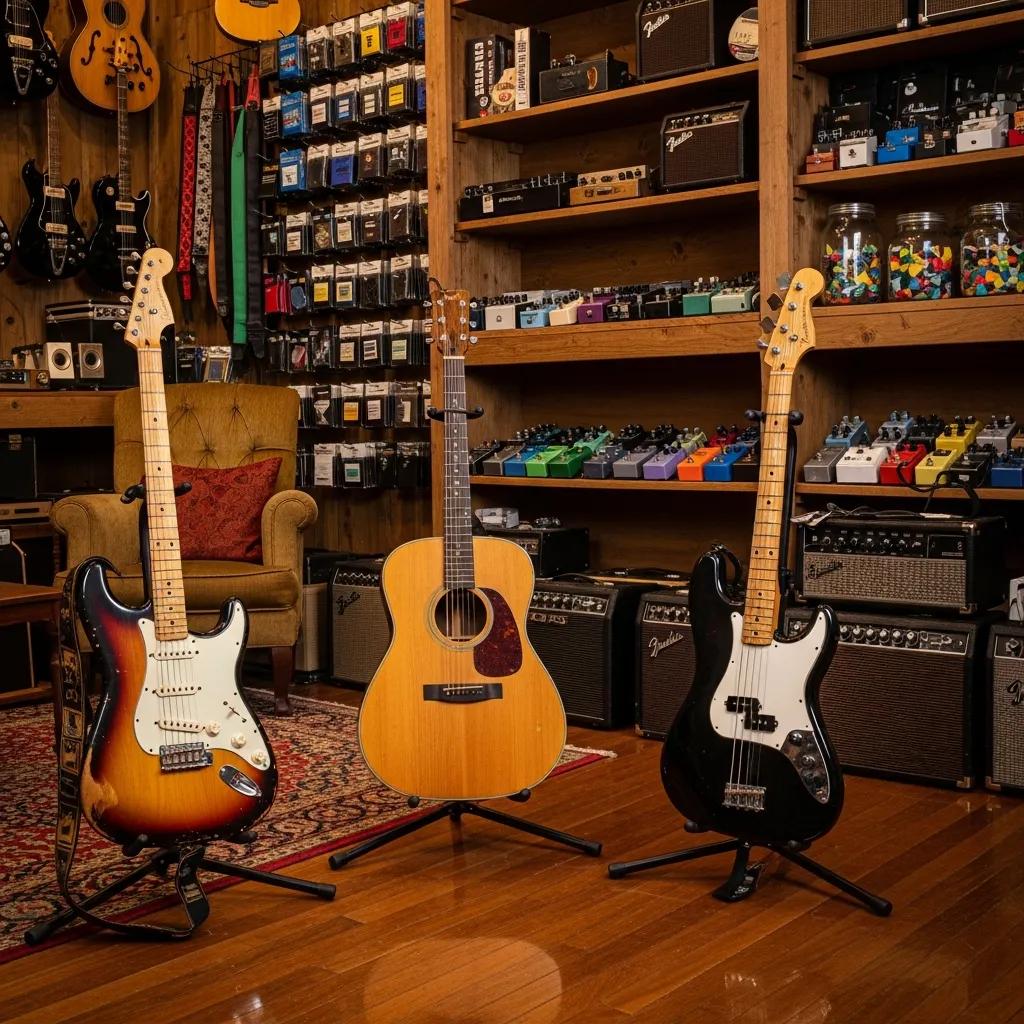Learning the guitar is an exciting journey filled with both challenges and triumphs. Whether you dream of strumming your favorite songs, impressing friends at gatherings, or even composing music, starting on the right foot makes all the difference. As a beginner, you might feel overwhelmed by the sheer amount of information, gear options, and advice out there. The good news? With the right approach and a touch of patience, anyone can progress steadily and enjoy the process. These five essential guitar tips for beginners are designed to help you avoid common pitfalls, build confidence, and foster a lasting love for the instrument.
1. Choose the Right Guitar for You
One of the first steps in your guitar-playing journey is choosing the right instrument. While it can be tempting to grab the cheapest guitar available or buy a fancy model seen in the hands of your guitar hero, this initial choice is crucial.
Key considerations:
- Type of guitar: Acoustic, classical, and electric guitars all have unique sounds and playability. Acoustic guitars are versatile and portable, while electrics are often easier on the fingers due to lighter strings and lower action.
- Size and feel: Your guitar should fit comfortably in your hands. For younger players or those with smaller hands, a 3/4-size guitar or a thinner-necked model might be ideal.
- Quality over price: A poorly constructed guitar can make learning harder and frustrate even the most eager beginners. If possible, test various models in a music store, or seek advice from a knowledgeable player or teacher.
Pro tip: Set up your guitar properly! Even a budget-friendly instrument will play better with a proper setup—this includes adjusting the action, tuning, and making sure there are no sharp fret ends or buzzing strings.
2. Master the Basics: Chords, Strumming, and Tuning
It’s easy to get carried away with complex solos and riffs you find on the internet. However, building a strong foundation is vital for long-term success.
Start with basic chords:
Begin with open chords like C, G, D, E, A, and Em. These are the building blocks for hundreds of popular songs. Work on smooth transitions between these chords—the more effortlessly you change chords, the more songs you’ll be able to play.
Learn proper strumming:
Many beginners focus solely on fretting and neglect their strumming hand. Start by practicing simple up and down strokes with a metronome. Gradually introduce rhythm variations, muting, and dynamics to make your playing more expressive.
Get in tune—every time:
Playing an out-of-tune guitar can be disheartening and will hinder your ear development. Buy a clip-on tuner or use a tuning app, and make it a habit to tune your guitar before every practice session.
3. Practice Mindfully and Regularly
No one becomes a great guitarist overnight. Consistent, focused practice will yield the best results. But how you practice matters just as much as how often you practice.
Set realistic goals:
Instead of playing randomly, decide what you want to achieve each week—whether it’s memorizing a new chord, perfecting a song’s intro, or improving your strumming.
Short, frequent sessions:
Practicing for 20–30 minutes daily is often more effective than a single long practice session each week. This keeps your fingers nimble and your mind engaged without overwhelming you.
Use a metronome:
Timing is everything in music. Practicing with a metronome improves your rhythm and ensures you develop consistent timing. Start slow and speed up as you grow comfortable.
Embrace mistakes:
Everyone makes mistakes. Instead of getting frustrated, see them as learning opportunities. Break down tricky sections, play them slower, and repeat until muscle memory forms.
4. Build Proper Technique from the Start
Bad habits formed early on can be tough to break later. Focus on adopting the correct posture, hand position, and picking technique.
Posture and grip:
Sit up straight and hold the guitar so it feels stable but not tense. Avoid slouching or hunching over the instrument. Your fretting hand thumb should generally rest behind the neck, rather than peeking over—this gives you better reach and control.
Finger placement:
Press down on the strings with your fingertips just behind the frets, not directly on top nor too far from them. This minimizes buzzing and produces a clean sound.
Relax!
Tension is the enemy of smooth playing. Shake out your hands between exercises and stay conscious of any stiffness in your arms, shoulders, or neck.
Simple exercises:
Daily warm-up routines, such as chromatic runs or finger stretches, boost dexterity and reduce the risk of injury.
5. Stay Inspired and Have Fun
Learning guitar can be challenging, especially in the early phases. To stay motivated, make sure you nurture your love for music and celebrate small victories.
Play what you love:
Integrate songs you enjoy into your practice routine. Even if they’re simplified versions, playing familiar tunes keeps you engaged.
Jam with others:
Music is meant to be shared. Playing with friends, joining online communities, or seeking out a teacher can open new doors, provide feedback, and make practice sessions more enjoyable.
Record yourself:
Use your phone or computer to record your playing. Listening back can help you spot areas for improvement and track your progress over time.
Setbacks are normal:
You might hit plateaus where progress seems slow. Don’t let these moments discourage you—they are a natural part of learning any instrument. Take breaks if needed and come back with fresh energy.
In conclusion, picking up the guitar is one of the most rewarding decisions you can make. By choosing the right instrument, mastering the basics, practicing regularly, building solid technique, and, most importantly, having fun, you’ll set yourself on the path to lifelong musical enjoyment. Remember, every great guitarist was once a beginner. Stay patient, play often, and let your creativity shine through every chord and melody. Happy strumming!




Share:
Easy Christmas Music Guitar Chords for Beginners
Top 10 best songs to play on an acoustic guitar